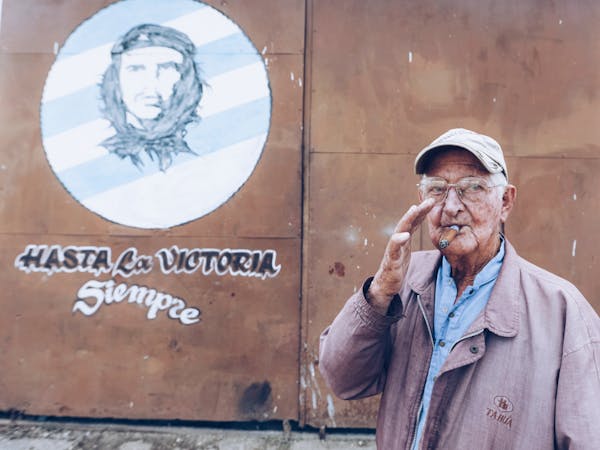
The perception of Che Guevara is highly polarized, and opinions about him often depend on one’s political ideology and perspective. To some, Che Guevara is celebrated as a revolutionary hero who fought for social justice and equality, particularly during the Cuban Revolution alongside Fidel Castro. He symbolizes resistance against oppression and imperialism, and his image has become iconic worldwide.
On the other hand, critics argue that Guevara was a ruthless Marxist revolutionary who engaged in violence and authoritarian tactics to achieve his goals. They point to his role in the Cuban government’s execution of political opponents, his involvement in revolutionary movements in other countries, and his advocacy for armed struggle as evidence of his controversial legacy.
Ultimately, whether one views Che Guevara as good or bad often hinges on their perspective on revolution, socialism, and the methods used to achieve societal change.
In addition to being a political and revolutionary figure, Ernesto “Che” Guevara had medical training. He was born on June 14, 1928, in Argentina, and studied medicine at the University of Buenos Aires. Following graduation, he traveled around Latin America and was appalled by the poverty and unfairness he saw. This voyage was essential in forming his political ideals and dedication to revolutionary struggle.
Throughout his life, Guevara blended his medical expertise with political involvement. During the Cuban Revolution, he served as a military commander and guerrilla leader while also working as a doctor, treating both fighters and civilians. Following the revolution, he held a number of roles in the Cuban government, including Minister of Industry.
Guevara’s image as “the guerrilla doctor” has become part of his mystique, adding to his global fame. His legacy as a doctor and revolutionary is still debated and controversial, but his commitment to the fight for social justice and equality continues to inspire many people throughout the world.

In 1958, “Che” Guevara, Fidel Castro, and his revolutionaries invaded our country. His position in the regime was critical to Cuba’s strategy towards the communist bloc, which was led by the Soviet Union.
Guevara advocated Marxist-Leninist ideals and was not afraid to defend them with violent and unlawful methods, such as murder or tribunals that lasted less than an hour and did not follow any constitutional guidelines.
He advocated for labor camps, known as Military Units for Aid Production, where gays were imprisoned as part of a persecution strategy that mirrored communist tactics in Eastern Europe because Che saw homosexuality as contradictory to his ideal of the “new man.”
These labor camps were actual concentration camps, and the Cuban government appropriated the Auschwitz motto “work sets you free,” substituting it with “work will make them men,” since they believed that forced labor for long hours would rectify homosexual behavior.
People from various religions, including Catholicism and Afro-Cuban religions, as well as political opponents, were placed into these camps. Anyone who wasn’t a revolutionary or communist was considered an enemy.
Ernesto “Che” Guevara, a devoted disciple of Fidel Castro and his beliefs for the communist revolution, was a key proponent of the “revolution” that wreaked havoc on our country. His acts were critical to the formation of the Castro regime, which has been in power for 62 years.
He erected flags for the “liberation of the people,” but instead of liberating them, he left them hungry and abandoned.
Che Guevara was not, is not, and will not represent Cuba. The people are Cubans, and they have said enough.
Cuba Decide promotes a change in the island’s political system. A political system free of antiquated socialism, authoritarianism, and indoctrination. We want Cuba to be a model country that values economic, social, and political freedom and allows Cubans to make meaningful decisions.

